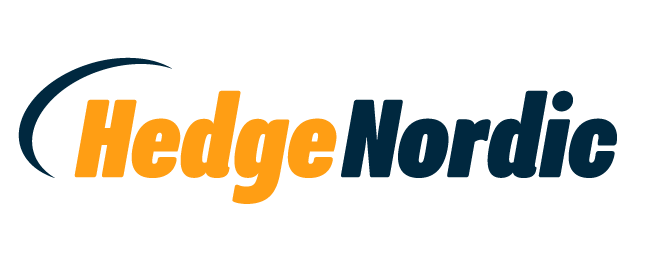Bifogade filer
Prenumeration
Vem äger bolaget?
All ägardata du vill ha finns i Holdings!
Stockholm (HedgeNordic) – In a world increasingly dominated by passive investing, Swedish fund boutique Protean Funds is waging a battle to keep active management alive and thriving. Known for its rebellious, flexible and active approach, the boutique launched its equity hedge fund in mid-2022 and a long-only small-cap equity fund soon after. Following its two successful launches, Protean is stepping into the broader equity arena to challenge not only active management but also the growing dominance of passive strategies.
Protean was established in January 2022, with its equity hedge fund, Protean Select, launched in May of the same year. Managed by founders Pontus Dackmo and Carl Gustafsson, Protean Select is a returns-focused hedge fund that employs a long/short strategy focused on Nordic equities. Its primary goal is to compound capital at a steady rate without catastrophic drawdowns. The boutique’s second fund, Protean Small Cap fund, serves as its higher-risk counterpart, adopting a long-only approach to invest in small- and mid-cap equities. By design, both funds prioritize optimal returns over asset accumulation, distancing themselves from the “asset gatherer” label – a concept the founders have deliberately rejected since Protean’s inception.
A New Active Fund Built on Low Fees
The duo, along with the broader team at Protean, is now preparing to launch a third fund aimed at outperforming broader market indices with low fees by embracing a common-sense long-term strategy that needs scale. According to the team, there are two main ways for a long-only manager to outperform the index. The first, embodied by Protean Small Cap, is to “be small, work hard and be hyperactive.” The second, embraced by the new fund, is to “own good businesses for a long time, pay as little as possible in fees and transaction costs and avoid stupid things.” For a low-fee fund to remain operational and sustainable, however, achieving significant scale in assets is essential.
“The third fund we’re about to launch has a different rationale: it aims to address the market inefficiency where only one in ten active managers outperforms the index over any given 10-year period,” explains Pontus Dackmo, CEO of Protean Funds. “We will offer a product we think is missing for many investors: a sensible actively managed long-term Nordic equity fund with a Very Low Fee that can beat the index,” he emphasizes. A unique feature is that the fund’s management fee will decrease as its assets grow, despite starting at less than half the average fee of actively managed Nordic funds. With every SEK 10 billion in assets under management, the fee will be further reduced, eventually aligning with the cost of index funds once the fund reaches SEK 50 billion in assets.
The fund will be structured as a daily-traded UCITS fund, holding 40 to 50 stocks with an investment horizon exceeding ten years, resulting in a turnover of just 4-5 stocks annually. “With limited turnover, transaction costs are minimized,” argues Dackmo. He highlights two major drawbacks of index funds that the new fund intends to avoid: they cannot, by definition, outperform the index, and they are required to hold the least attractive stocks within the index. The new fund will deliberately avoid over-indebted companies, low returns on invested capital, and fads.
The fund will be managed by Protean’s recent hire, Richard Bråse, a seasoned Dagens Industri reporter and one of Sweden’s most skilled stock analysts. “Richard is one of the most interesting investment-thinkers I have ever come across,” notes Dackmo. “His capacity for independent thought and integrity is exactly what’s needed to sort the wheat from the chaff among the Nordic large- and mid-caps,” he argues. Situated outside the hustle of Stockholm, Bråse is ideally positioned to bring the long-term focus and patience required for a fund that, in many respects, aligns more closely with an investment company than a traditional fund. An investment company, after all, is defined by its role as a long-term, thoughtful owner of decent businesses at a low cost. “We tip our hat and aim to replicate just that in a low-priced fund structure that gets cheaper as it grows,” says Dackmo.
“It is truly remarkable this type of fund does not yet exist, but the reason can be found in the industry structure and inertia,” argues Dackmo. “Big asset managers would rather protect their existing expensive and underperforming funds than cut fees, and smaller assets managers cannot afford to reach the scale needed to break even on a low-cost fee,” he continues. He describes this as a market failure, as such a product would benefit both long-term retail investors and institutions seeking cost-efficient exposure to strong Nordic companies. “Our middle way of sharing the scale advantages as the fund grows by lowering the fees is the best compromise we can come up with and we hope it eventually will become a true challenger to both active and passive funds alike,” concludes Dackmo.

